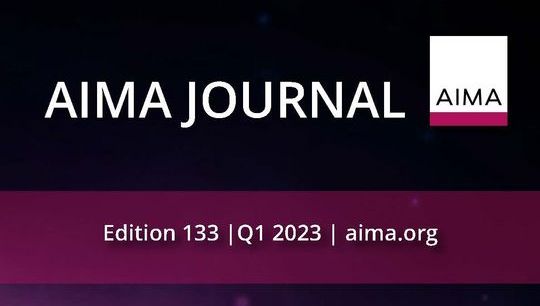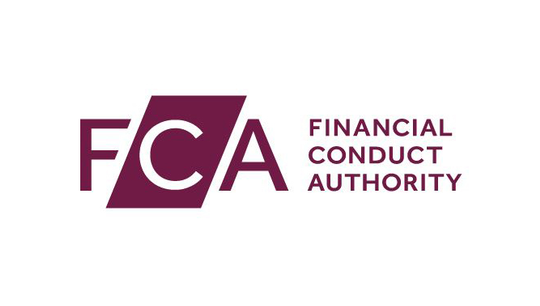IFPR hotspots - What’s on the FCA’s radar?
By Priya Mehta; Edward Fullard; Angus Peagam, Buzzacott
Published: 20 March 2023
It’s been one year since the implementation of the IFPR in the UK, and it’s apparent that some firms are still trying to get to grips with the multifaceted regime. There’s a range of new concepts and jargon on the platter, such as complex K-factors, transitional provisions, new definitions of capital, new regulatory returns with stringent deadlines and higher frequency, the ICARA process, wind down planning, the group capital test exemption, the ‘overall financial adequacy rule’, assessment of harms, MIFIDPRU disclosures, new remuneration codes, calculations of thresholds and indicators. The implementation of the IFPR has triggered a complete overhaul of the prudential rules on capital adequacy and liquidity.
Through our own continuous engagement with the industry, we sense that there’s generally a good understanding of the rules, but equally, there’s some apprehension around how much is ‘enough’ in terms of demonstrating compliance with the regulation.
The ominous uncertainty of various factors, such as inflation, rising interest rates, recession, and major disruptions to global trade, cause further harm in the short and medium term to how traditional ways of doing business may change as new forces begin to propel the industry.
In this article, we discuss finding the right balance and share our thoughts on what we think the Financial Conduct Authority (FCA) is likely to focus on in 2023.
FCA’s ‘data gathering process’
Over the past few years, the FCA haven’t refrained from informing us about the progress they continue to make relating to the upgradation of their ‘Digital Regulatory reporting’ (DRR) project. In their own words, “Regulatory reporting is vital to the supervisory process, and a core mechanism for identifying risk, ensuring compliance and achieving our operational objectives. Our project explores how we might automate and streamline various aspects of the regulatory reporting process by analysing the entire regulatory reporting lifecycle, from harm identification to implementation. This process has been called creating machine readable regulation (MRR) and machine executable regulation (MER). The FCA is embedding DRR as part of the FCA’s Data Strategy, which aims to harness data and advanced analytics to support our Mission, and ultimately transform how we carry out financial regulation in the UK.”
This obviously puts a significant amount of onus back on the firms to ensure that the data reported to the FCA is accurate and complete. A typical asset manager regulated by the FCA is obliged to submit nearly 40 regulatory returns through RegData every year, which amounts to nearly 1,000 boxes of data (although not all returns and not all boxes would apply to every type of firm). The data comprises financial information contained in the firm’s balance sheet, profit and loss account, capital adequacy position, liquidity position, counterparty information, controllers, close links, client money, financial crime update, audited financial statements, compliance with the SMCR, compliance with the ICARA and concentrations. Not to forget the additional notifications and permissions featured on FCA’s Connect platform.
Specifically with regards to the IFPR, the FCA started reminding firms of the supervisory powers that they hold over them. This was clear in recent ‘Dear CEO’ letters issued which include the following statements:
“All firms should have implemented the Investment Firms Prudential Regime (IFPR), which came into force on 1 January 2022, and considered our recently-published observations on wind-down planning. Firms’ boards should test the adequacy of their firm’s IFPR implementation, including their internal capital adequacy and risk assessments (ICARA), as well as their recovery and wind-down plans. Where we identify material prudential weaknesses, we will take action. This has recently included imposing capital/liquidity scalars, business restrictions and skilled persons reports” – letter dated 1 December 2022
“To improve financial resilience, firms should review the level of liquidity that they hold under the new Investment Firm Prudential Regime (IFPR) and ensure that their assessment is commensurate with the risks they face. We will be carrying out targeted work in this space, and where we identify material weaknesses or firms underestimating their liquidity needs, we will take action, which may include business restrictions and Board effectiveness reviews. Firms should also look beyond recent historical precedent when modelling stresses, noting that the past 12 months have produced a series of events that were previously considered implausible based on historic modelling. While we generally expect to see more prudence in this environment we accept there are limits to capital and liquidity that can be held against stresses, which mean a careful balance must be struck ” – letter dated 11 January 2023
Further, on 27 February 2023, the FCA published their initial observations on ICARAs, wind down plans and regulatory returns they reviewed as part of a wider multi-firm review.
Key concerns expressed by the FCA are:
- Insufficient consideration of firm-specific risk and harms in the assessment of threshold requirements of individual firms required by MIFIDPRU
- Inadequate integration of the firm’s approach to managing financial resources to mitigate the risk and harms from its operations within the assessments made as part of the ICARA process
- Lack of comprehensive own funds and liquid assets triggers and inadequate explanations where there was a reduction in risk capital
- Incorrect implementation of the ‘group ICARA process’ without an appropriate ‘Voluntary Requirement’ approval obtained from the FCA
- Unsatisfactory governance and Board & Executive involvement in ICARA
- Weak wind-down planning assessments in terms of scope and quantification, reflecting an incomplete understanding of the purpose of the exercise and of guidance previously provided
- Inconsistent and inaccurate data submitted in regulatory reports
Supervisory Review and Evaluation Process (SREP) – the big change
One could argue that it’s the regulators’ job to ‘regulate’, and the FCA has always used the SREP as a tool. However, in our opinion, the clarity of their approach to the SREP, as explained in chapter 7.10 of the MIFIDPRU Handbook, is unprecedented. The intense spotlight on the ongoing regulatory reporting and the ICARA process is evident in the following extracts from the MIFIDPRU chapter.
| Decision to conduct a SREP | Information and factors considered by the FCA when conducting a SREP |
|---|---|
|
|
Prevention is better than a cure
The chapter on SREP goes further into the details of the actions that the FCA will take depending on the severity of the issues identified. However, our attitude has always been that firms shouldn’t give the FCA a reason to initiate any questioning. Granted, there may be some wider reasons why the FCA would want to take a closer look at your regulatory returns or may ask you to submit your ICARA. It is, therefore, very important that all the documentation is in line with their expectations so that further damage can be avoided.
We anticipate the FCA will publish more guidance and possibly a thematic review on the ICARA process during the year, which will be expected to be taken into account when you carry out your annual assessment. This could involve an in-depth focus on stress testing and reverse stress testing, assessment of group risk or more robust wind down plans.
Over the past year, we have conducted many independent reviews of regulatory returns and ICARAs, which has led to substantial corrections and enhancement of the documents. As much as it has been a learning curve for us, we have developed a wealth of experience in peer benchmarking and thorough understanding and application of the rules. If you believe a ‘regulatory health check’ could strengthen the quality of your documents, please feel free to contact us.









